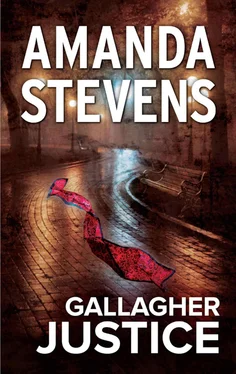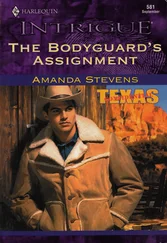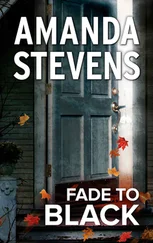Fiona had been so ruthless in her cross-examination of the defendant, a well-known businessman, that a reporter from one of the local papers had dubbed her the Iron Maiden, the prosecutor who wasn’t afraid to take on anyone, including the rich, powerful and politically connected.
“No one is above the law,” she’d been quoted in the papers, and if she and her brother, Tony, were the only ones who could fully appreciate the irony of her motto, that was just the way it had to be, Fiona had long ago decided.
Turning from the window, she walked over to the small dining table she used as a desk and surveyed the usual mess: an empty Diet Coke can, a greasy paper plate with a half-eaten slice of pizza, stacks of files, police reports and a yellow legal pad with a blank sheet of paper staring up at her.
She’d been working on the closing argument for the DeMarco case when she’d staggered off to bed just after midnight. Staring at the blank page now, Fiona frowned. She hadn’t made much progress earlier, and she knew why. She was nervous about this case. Nervous in a way she hadn’t been in years.
It was a rape case, for one thing, and, aside from the fact that she’d worked almost exclusively on homicides for the last four years, rape cases were notoriously unpredictable. In this instance, there wasn’t even DNA evidence to corroborate the woman’s testimony. Vincent DeMarco had used a condom. He was also a cop, a veteran detective who worked under Frank Quinlan’s command.
Quinlan was one of those clout-heavy cops who was virtually untouchable. Fiona had found out just how well connected he was when she’d cooperated with an Internal Affairs investigation into Quinlan’s interrogation methods.
A man she’d successfully prosecuted for murder, who was currently serving a life sentence at Stateville, had brought a lawsuit against the police department alleging that Quinlan and some of the detectives under his command, including DeMarco, had forced his confession by using physical and verbal intimidation, i.e. torture.
Fiona had been outraged. She always set out to win in the courtroom, but the last thing she wanted was to send an innocent man to prison or have a legitimate conviction overturned because of sloppy investigative work or police misconduct. It reflected badly on her and on the office of the state’s attorney, and she took the allegations personally.
Eventually the lawsuit was dropped, and Quinlan was exonerated by a police review board. But to this day, he carried a fierce grudge against Fiona. He’d refused to cooperate with her in the DeMarco investigation, partly out of loyalty to one of his own cops, but mostly, Fiona suspected, because he wanted to see her fall flat on her face.
A possibility that seemed more likely with each passing day. The case wasn’t going well and Fiona knew it.
She stared at the blank page for another moment, then jotted down the first statistic that came to her mind. One out of every three women in this country will be sexually assaulted in her lifetime. One out of every three ...
When the phone rang, she continued to write as she automatically reached behind her for the cordless unit on the counter. Then her hand froze as she realized the time. It was after two o’clock in the morning. No good news came after two o’clock in the morning.
“Hello?”
“Fiona? It’s Guy Hardison.”
At the sound of her boss’s voice, Fiona frowned. “Do you have any idea what time it is? What’s going on?”
“I just heard from Clare Fox,” he said referring to the police department’s deputy chief of detectives for the North Side. “We’ve got a problem. Could be a big one.” The smooth, polished timbre of his voice always took Fiona by surprise. Like her, he’d been raised in Bridgeport, but any trace of the stockyards had long since been stripped from his speech.
He was Fiona’s immediate supervisor in the Homicide/Sex Crimes Unit and over the years, the two of them had managed to hammer out a fairly congenial working relationship in spite of their sometimes huge philosophical differences. Guy was a shrewd, ambitious prosecutor who’d long ago mastered the art of political expediency and compromise. Fiona had not. Her passion for justice was only equaled by her temper and by her natural inclination to leap before she looked, a tendency that almost always landed her in hot water.
“A woman’s body was found in an alley at the corner of Bleaker and Radney tonight,” Guy continued. “Looks like a professional hit, and if it is, the press will have a field day. It’s just the kind of thing some ambitious reporter would love to sink his teeth into, particularly considering the latest headlines.”
He was alluding to a recent Justice Department report that showed Chicago moving ahead of New York in the number of murders per year. The crime statistics had made the front page of all the local papers, and the mayor, facing reelection in a few months, was livid.
“The police department is taking a lot of heat from both the mayor and the press.” Guy’s voice sounded tense, as if he might be catching some of the flak himself. “Clare wants to make sure this one is handled strictly by the book. No mistakes. No one walks on a technicality. She’s asked for an ASA on the scene to advise.”
He paused. “I’m assigning you as lead prosecutor, Fiona. You’ve got credibility with the press right now, and they like you. Plus, another capital murder conviction under your belt could make certain people sit up and take notice.”
Fiona wondered if he was throwing her a bone after the DeMarco case debacle, or if he had an ulterior motive up his sleeve. “You said Radney and Bleaker, right? That’s Area Three.” Frank Quinlan’s territory.
“You’re not afraid of Frank Quinlan, are you, Fiona?” His voice held the merest hint of a challenge, one he knew she wouldn’t be able to resist.
She scowled. “Hardly.” She’d proved that, hadn’t she?
“Then get over there and make sure his detectives don’t screw up the investigation before they even make an arrest. Take Milo with you.”
Milo Cherry was Fiona’s second chair. He was a young, eager prosecutor with a quirky sense of humor and a nearly photographic memory.
After several tries, Fiona finally managed to reach him on his cell phone. She could hear music and laughter in the background, and assumed he was at a late-night party or nightclub, which surprised her, considering they were due in court at nine that morning. But as long as he did his job, came through in a crunch, his social life was none of Fiona’s concern. And he certainly didn’t seem to mind being summoned at such an ungodly hour. He readily agreed to pick her up in ten minutes.
Fiona hurried to get dressed, and in the flurry of activity, she completely forgot about the nightmare that had awakened her earlier. But on her way out, the dream came back to her suddenly and she paused at the door, the uneasy notion that David Mackenzie’s ghost might be lurking on the other side niggling at her confidence.
For one brief moment, she couldn’t bring herself to turn the dead bolt, to step into the dimly lit hallway, to go downstairs and wait for Milo by the front door. She couldn’t seem to move at all.
This was crazy, she told herself firmly. David Mackenzie was dead. It wasn’t his cologne she smelled in her apartment. He wasn’t the killer who had dumped that poor woman’s body in an alley. David was dead and buried, and he wasn’t coming back.
But as Fiona mustered her resolve and stepped out into the hallway, something made the hair on the back of her neck stand on end.
For one split second, she could have sworn she felt an invisible presence in that hallway. A ghost from her past that had risen from the grave to demand justice.
Читать дальше












